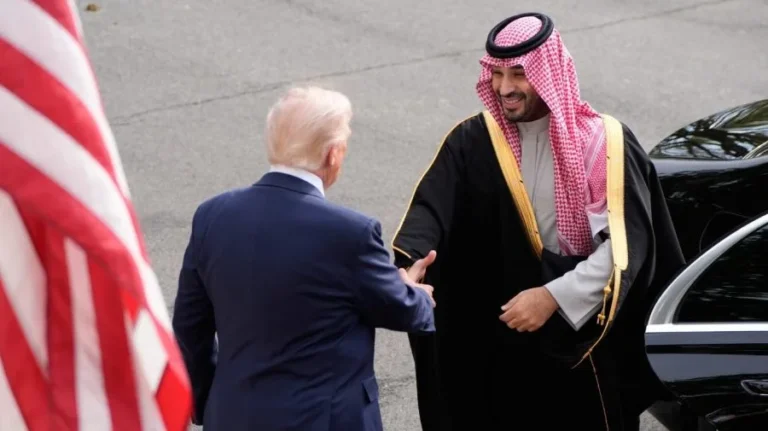President Trump announced on Tuesday that he signed a strategic defense agreement designating Saudi Arabia as a major non-NATO ally. The announcement came during a White House dinner honoring Saudi Crown Prince Mohammed bin Salman.
“Tonight, I’m pleased to announce that we are taking our military cooperation to even greater heights,” Trump said. He added that he wanted to keep the decision a surprise until the dinner.
The agreement highlights growing cooperation between Washington and Riyadh. Earlier on Tuesday, Trump and bin Salman announced that Saudi Arabia would invest $1 trillion in the United States. Administration officials also said an agreement to export semiconductor chips to Saudi Arabia could happen as soon as this week. Trump mentioned the potential for a future civil nuclear cooperation deal between the two nations.
Despite the diplomatic progress, Trump has faced criticism for hosting the crown prince. This is bin Salman’s first visit to Washington since the 2018 killing of journalist Jamal Khashoggi. The CIA concluded that the crown prince likely ordered the murder.
Saudi Arabia has also drawn international scrutiny for human rights issues and questions regarding its role in the September 11, 2001, terror attacks.
Trump defended bin Salman when reporters raised these concerns. He accused an ABC News journalist of “embarrassing our guests” while questioning the crown prince. In response, bin Salman expressed sympathy, saying he feels “pain about the families of 9/11 in America.”
The designation of Saudi Arabia as a major non-NATO ally is expected to strengthen U.S.-Saudi military collaboration, allowing for closer coordination, joint exercises, and easier defense sales. Experts say the move signals a deeper strategic partnership in the Middle East.
The $1 trillion investment and potential agreements on technology and nuclear cooperation further underscore the growing economic and defense ties between the two nations. Observers note that these agreements could have long-term implications for trade, security, and diplomacy in the region.
While the visit and agreements mark a milestone in U.S.-Saudi relations, critics continue to question the broader implications of close ties with a controversial leader. Human rights advocates have called for increased scrutiny of Saudi policies, even as Washington and Riyadh formalize their strategic partnership.







